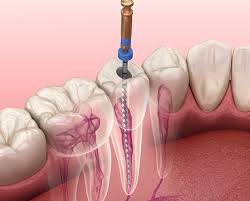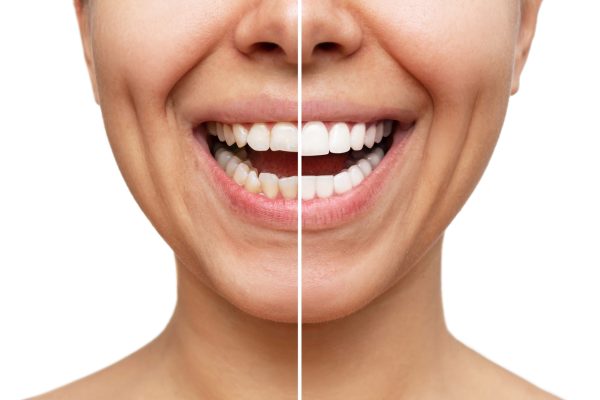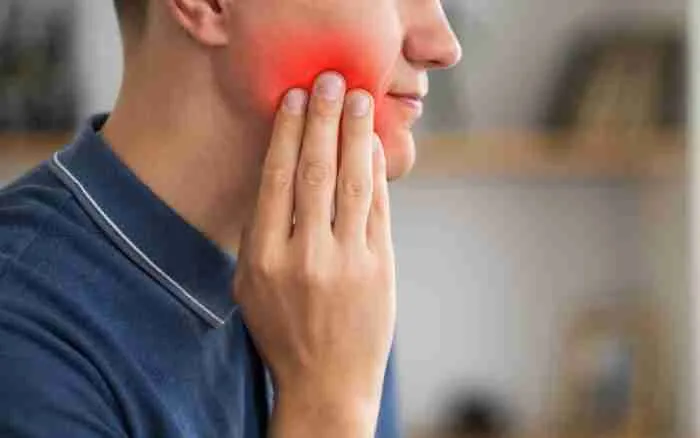If you’ve ever taken a sip of iced water, bitten into an ice cream, or even inhaled cold air and felt a sharp pain in your teeth, you’re not alone. Tooth sensitivity to cold is one of the most common dental concerns people face worldwide. While it can be a temporary annoyance for some, for others it’s a persistent issue that affects daily comfort and eating habits.
Understanding what causes tooth sensitivity to cold is the first step toward finding relief and protecting your oral health. In this article, we’ll break down the main causes, risk factors, and remedies in simple terms so you can feel more confident about your smile.
Understanding Tooth Sensitivity
Tooth sensitivity, also known as dentin hypersensitivity, occurs when the inner part of your tooth (called dentin) becomes exposed. Dentin contains tiny tubes filled with nerve endings. When it’s exposed to cold, heat, or even sweet foods, signals travel directly to the tooth nerve, resulting in that sudden sharp pain.
Normally, dentin is protected by enamel (the tooth’s hard outer layer) and gums. But when enamel wears down or gums recede, the protection weakens, and your teeth become sensitive.
Common Causes of Tooth Sensitivity to Cold
Let’s explore the main reasons why your teeth might react painfully to cold drinks, foods, or even air:
1. Enamel Erosion
Enamel is the hardest substance in the human body, but it’s not indestructible. Over time, acidic foods, drinks, or poor dental habits can erode enamel, exposing the dentin underneath.
- Causes of enamel erosion: acidic sodas, citrus fruits, stomach acid from acid reflux, or brushing too hard.
- Effect: cold sensations reach the nerves faster, causing pain.
2. Gum Recession
As gums pull back from the teeth, usually due to gum disease or aggressive brushing, the roots of the teeth become exposed. Unlike enamel, tooth roots are not protected, making them extremely sensitive.
3. Tooth Decay (Cavities)
A cavity weakens the tooth structure and allows cold substances to penetrate closer to the nerve. If untreated, cavities can progress and cause intense toothache, not just sensitivity.
4. Cracked or Chipped Teeth
Even a small crack in a tooth can expose the dentin or even the pulp (where nerves are located). Cold foods or drinks can seep into these cracks, triggering sharp pain.
5. Worn Dental Fillings
Old or damaged fillings may not protect your tooth properly anymore. Gaps or cracks around fillings can allow cold stimuli to reach sensitive areas.
6. Grinding Teeth (Bruxism)
Many people grind or clench their teeth, especially during sleep. Over time, grinding wears down enamel, leaving teeth more vulnerable to sensitivity.
7. Recent Dental Procedures
Sometimes, sensitivity is temporary and occurs after dental treatments such as teeth whitening, fillings, or crown placements. This usually goes away within a few days to weeks.
Less Common Causes
Although less frequent, some conditions can also lead to cold sensitivity:
- Gum infections that affect the roots of teeth.
- Exposed dentin due to receding gums from aging.
- Worn-out crowns or bridges that leave parts of the tooth vulnerable.
- Sinus infections that sometimes cause upper teeth to feel sensitive due to pressure on the roots.
Who Is Most at Risk?
Tooth sensitivity can affect anyone, but you’re more likely to experience it if you:
- Frequently consume acidic foods and drinks.
- Have poor oral hygiene habits.
- Brush your teeth aggressively with a hard-bristled toothbrush.
- Grind your teeth at night.
- Have untreated cavities or gum disease.
- Recently had dental procedures.
How to Manage and Treat Tooth Sensitivity to Cold
The good news is that tooth sensitivity can often be managed or even prevented with proper care. Here are some effective steps:
1. Use Desensitizing Toothpaste
These toothpastes contain compounds like potassium nitrate or stannous fluoride that block pain signals from reaching the nerves. Regular use can reduce sensitivity significantly.
2. Switch to a Soft-Bristled Toothbrush
Hard bristles can wear away enamel and cause gum recession. A soft brush, combined with gentle brushing, protects enamel and gums.
3. Improve Your Brushing Technique
Instead of brushing aggressively, use small circular motions. Brushing too hard does more harm than good.
4. Limit Acidic Foods and Drinks
Cut down on soda, citrus juices, and wine. If you do consume them, rinse your mouth with water afterward.
5. Wear a Mouthguard
If you grind your teeth, especially at night, a dentist-prescribed mouthguard can protect your teeth from damage.
6. Maintain Good Oral Hygiene
Brushing twice a day, flossing daily, and rinsing with fluoride mouthwash help keep cavities and gum disease away.
7. Professional Dental Treatments
If sensitivity doesn’t improve, your dentist may recommend:
- Fluoride varnish applications to strengthen enamel.
- Bonding to cover exposed roots.
- Crowns or inlays to protect damaged teeth.
- Gum grafts for severe gum recession.
- Root canal treatment if the nerve itself is damaged.
Preventing Tooth Sensitivity in the Future
Prevention is always better than cure. Here are simple lifestyle changes that help:
- Brush and floss daily without overdoing it.
- Visit your dentist every six months.
- Avoid overusing teeth whitening products.
- Reduce frequent snacking on sugary or acidic foods.
- Stay hydrated to maintain saliva, which protects enamel.
When to See a Dentist
Occasional mild sensitivity is common, but if your teeth hurt every time you eat or drink something cold, don’t ignore it. Persistent or severe sensitivity could signal cavities, cracked teeth, or gum disease that need professional treatment.
Quick Reference Table: Causes vs. Remedies
| Cause of Sensitivity | Possible Solution |
|---|---|
| Enamel erosion | Desensitizing toothpaste, fluoride treatment |
| Gum recession | Gum graft, proper brushing, soft brush |
| Cavities | Dental filling or crown |
| Cracked tooth | Bonding, crown, or root canal |
| Grinding teeth | Mouthguard, stress management |
| Worn fillings | Replacement by dentist |
| Temporary post-procedure pain | Usually resolves on its own |
Conclusion
Tooth sensitivity to cold can make simple joys like eating ice cream or sipping chilled water uncomfortable. But knowing what causes tooth sensitivity to cold gives you the power to manage it effectively. Whether it’s enamel erosion, gum recession, cavities, or other issues, the key is identifying the cause and taking the right steps. With proper dental care and lifestyle changes, most people can find lasting relief.
FAQs About Tooth Sensitivity to Cold
1. Can tooth sensitivity to cold go away on its own?
Yes, sometimes sensitivity is temporary, especially after dental procedures or minor enamel wear. However, if it lasts more than a few weeks, see a dentist.
2. Does tooth sensitivity always mean I have cavities?
No, cavities are just one possible cause. Sensitivity can also result from enamel erosion, gum recession, or grinding.
3. Are home remedies effective for sensitive teeth?
Home remedies like using fluoride toothpaste, rinsing with salt water, or avoiding acidic foods can help. But they may not replace professional treatment if the cause is serious.
4. Can whitening treatments make teeth more sensitive?
Yes, whitening can temporarily increase sensitivity because bleaching agents can irritate nerves. Sensitivity usually subsides within a few days.
5. When should I worry about tooth sensitivity?
If the pain is severe, constant, or affects multiple teeth, it’s best to consult a dentist. It could be a sign of cavities, infections, or other dental problems.
Social Sharing
Your Content Goes Here
Latest Posts





